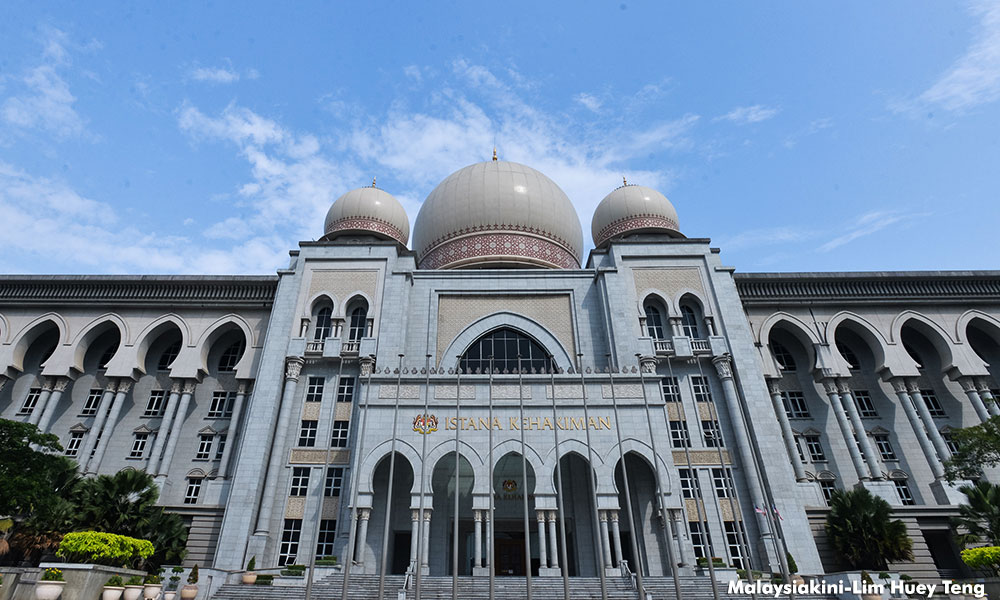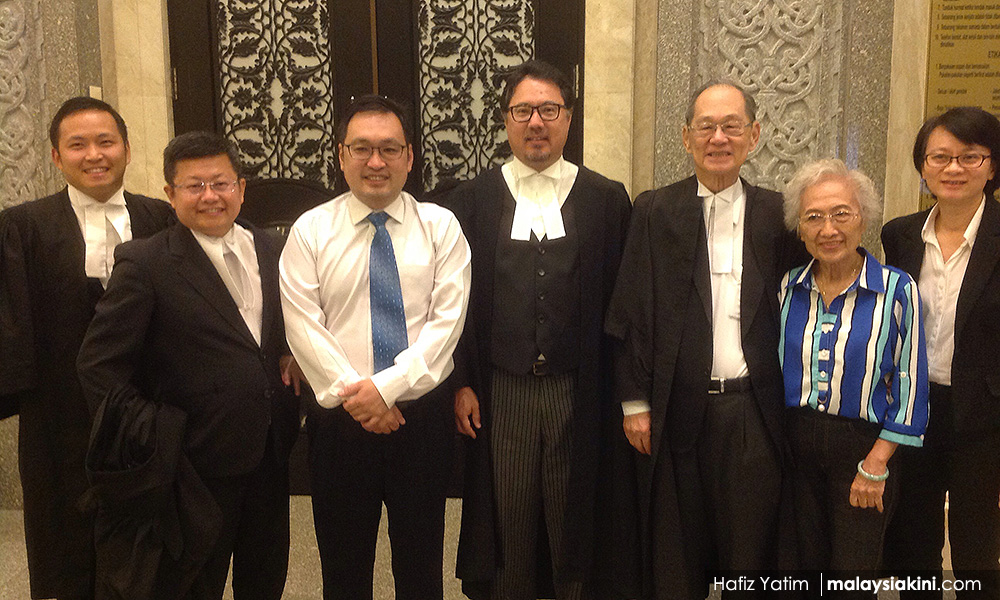
In a landmark decision, the Federal Court ruled today that the federal and state governments can sue individuals for defamation.
A five-member bench led by Court of Appeal president Ahmad Ma'arop ruled that in Bandar Kuching MP Chong Chieng Jen's appeal in his case against the Sarawak government, the Derbyshire principle is not applicable as there are existing laws available, including the Government Proceedings Act 1956 (GPA).
The government has a reputation, the court said, which it could protect via defamation suits.
Ahmad, who wrote the unanimous judgement, partially upheld the Court of Appeal majority decision from 2016, which ruled that Section 3 of the GPA does not exclude proceedings in libel or defamation by or against the government.
Nonetheless, Ahmad ordered for Chong's case to remitted back to the Kuching High Court, as the Court of Appeal had erred in entering its judgment.
The common law Derbyshire principle, which forbids public authorities from bringing actions for defamation, had previously been enforced twice by the Court of Appeal, when striking out suits by former Pahang menteri besar Adnan Yaakob and former Penang chief minister Lim Guan Eng against the media.
'Statutory right to sue'
Chong, now the deputy domestic trade and consumer affairs minister, was sued by the Sarawak government for defamation in 2012 after issuing a statement which was carried by the several news portals, including Sin Chew Daily and Malaysiakini.

His statement concerned the Sarawak government allegedly channelling RM11 billion to agencies said to be unknown to the public.
Although Chong won at the Kuching High Court, the Court of Appeal subsequently reversed the decision and ruled that the Sarawak government could sue for defamation.
Sitting with Ahmad on the bench today were Federal Court judges Hasan Lah, Azahar Mohamed and Aziah Ali. The other judge, Justice Abu Samah Nordin, had retired since Chong's appeal was first heard at the apex court in March last year.
In challenging the appellate court's decision, Chong had posed three questions of law before the apex court 2016, namely:
- Whether the Government Proceedings Act 1956, in particular Section 3, prevents the principle in the Derbyshire County Council v Times Newspaper Ltd & Ors landmark case to be applied to the Sarawak state government;
- Whether Section 3(1)(c) of the Civil Law Act prevents the principle in the Derbyshire case to be extended to the Sarawak state government.
- Whether a party who had entered various defences would be deemed to have abandoned all their other defences after making an application on parts of their defence under Order 14A of the Rules of Court (ROC) 2012.
In his judgement, Ahmad said that the government has a statutory right to sue as provided for in GPA.
He further explained that the Derbyshire principle does not apply because Section 3 of the Interpretation Acts 1948 (1967), the words "written law" does not include common law.
"Thus the statutory right of the government to sue in civil proceedings under Section 3 of the GPA including for defamation is not subject to the common law of England.
"GPA does not preclude the government from taking civil action for defamation," he said.
Ahmad added that there is nothing in the GPA which can be construed as prohibiting or restricting the government from suing for defamation.
"It is clear that in (the case of) Derbyshire, the House of Lords decided the local government corporation could not sue for defamation, not because of the likely chilling effect on freedom of speech of granting the right to sue.
"The Federal Court is unable to accept Chong's lawyer's submission that the government has no reputation," he said adding that he answered the first two questions posed above in the affirmative.
The judge also noted that while Article 10(1)(a) allows freedom of speech, Article 10(2) states Parliament can impose restrictions by enacting necessary laws – in this case, what is subject to defamation.
Court of Appeal wrong to judge
As Ahmad explained, he ordered for Chong's case to remitted back to the Kuching High Court as the COA was wrong to judge Chong 2016 – despite agreeing with most of its judgement.
"Although the majority of the COA decision was right, in holding the Sarawak government have the right to sue and maintain action for damages for defamation against Chong, it erred when it decided to enter the judgment against the MP.
"All the four questions posed in the High Court were answered in favour of the government without the need to hear his defence.
"The COA further erred in asking the senior assistant registrar to asses the damages. Hence, we set aside the two orders and direct the case remitted back to the High Court there," he said.
Oct 3 has been fixed for case management at the Kuching High Court.
decision, as it gives him an opportunity to defend himself, unlike in the appellate court judgment.
"I raised the issue in the state assembly without getting an answer, and now we can get the answer in court. I will also have a chance to defend myself," he said.
Chong was represented by Ranjit Singh, while Sarawak legal advisor Mohd Azrul Azlan appeared for the government. - Mkini



No comments:
Post a Comment
Note: Only a member of this blog may post a comment.